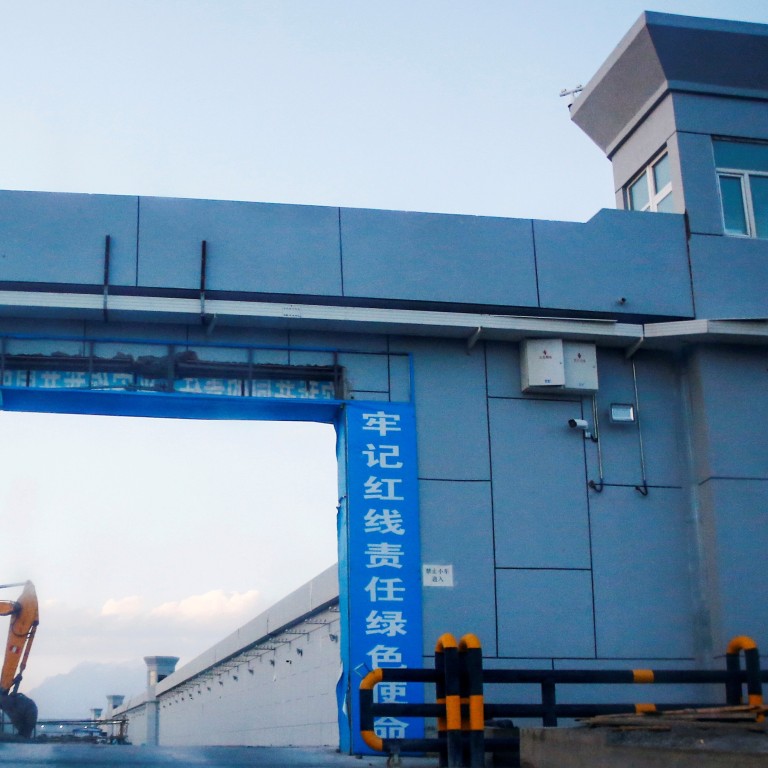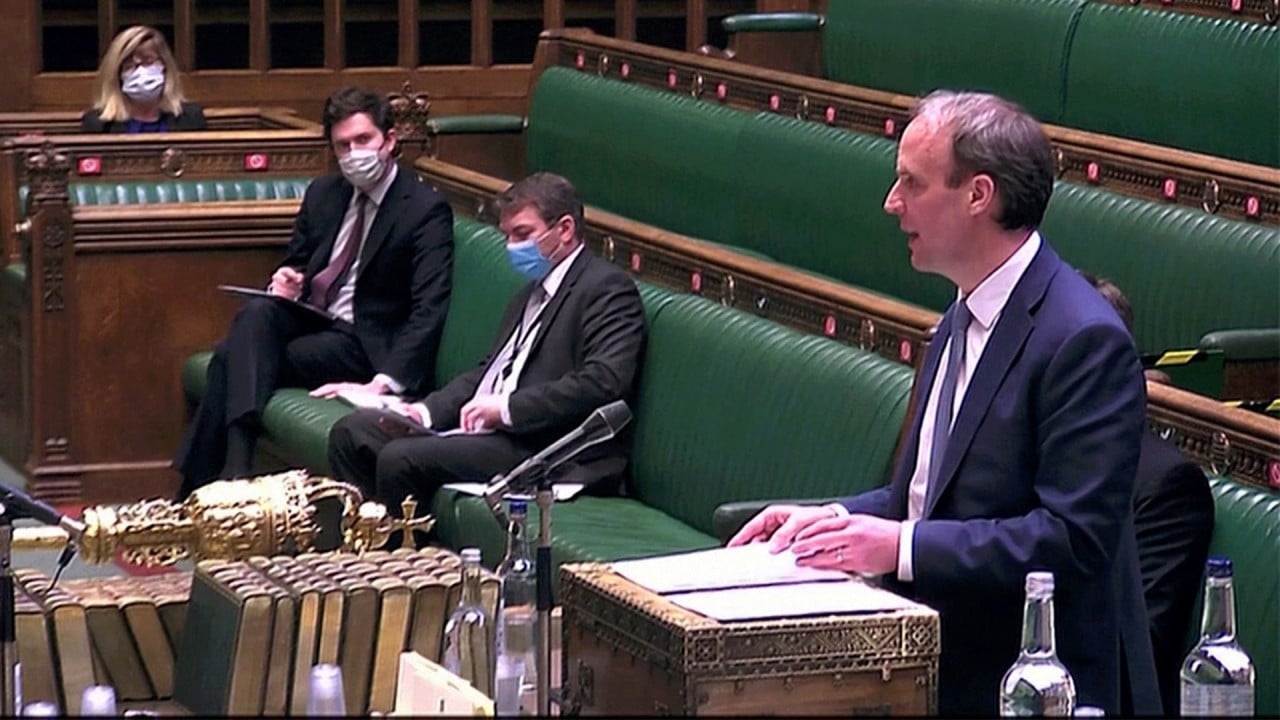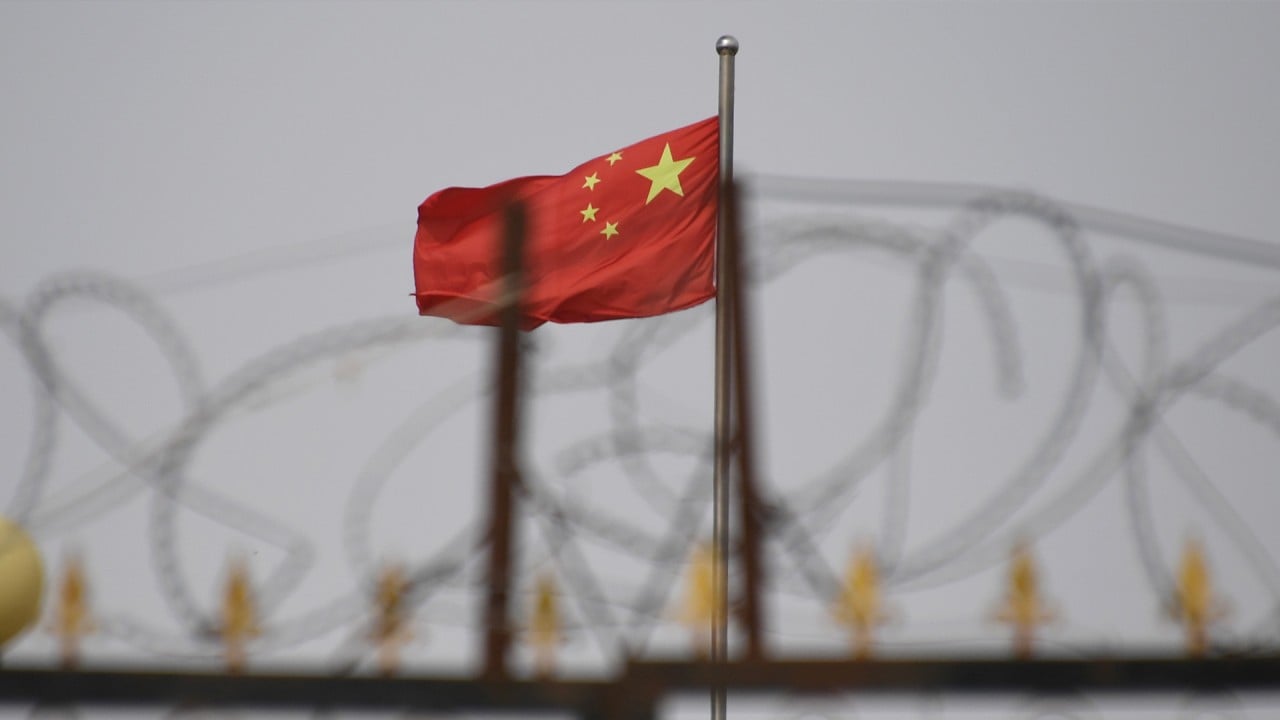
China-EU relations: why Beijing may not want to let Xinjiang sanctions undermine investment deal
- A Chinese foreign ministry spokeswoman warned that Brussels cannot talk about cooperation on one hand and harm China with the other
- But diplomatic observers believe that it does not want to let the first EU sanctions on China since the Tiananmen crackdown ruin its trade relationship
The EU’s sanctions on four individuals and one entity accused of human rights abuses in Xinjiang were the first of their kind since the bloody Tiananmen crackdown of 1989, and mirrored those imposed by the United States, Britain and Canada.
In response, Chinese foreign vice-minister Qin Gang summoned the EU’s ambassador Nicolas Chapuis on Monday and the British ambassador Caroline Wilson the following day.
Chinese foreign ministry spokeswoman Hua Chunying told a regular press briefing the EU “cannot talk about cooperation on one hand, and impose sanctions to harm China’s rights and benefits on another”.
US, EU, UK, Canada launch sanctions blitz; Beijing hits back
Hua was responding to a question about whether the sanctions would affect the Comprehensive Agreement on Investment (CAI) signed by the EU and China in December and added: “This is unreasonable and will lead nowhere. The EU should reflect on its behaviour and stop the confrontation, and contribute to the healthy and stable development of bilateral ties with practical moves.”
While Beijing responded to the EU’s move almost immediately with sanctions on 10 European individuals and four Organisations, including academics and politicians, none of the measures has touched on economic and trade relations.
The latest sanctions from the EU follow a drive by the Biden administration to revive the transatlantic partnership to counter China — efforts the investment deal had threatened to undermine.
In the months since the agreement was signed, Beijing has talked up the economic opportunities it offers the EU and celebrated the news that it had replaced the US as the bloc’s biggest trading partner last year.

02:02
Britain sanctions Chinese officials over Xinjiang alongside US, EU and Canada
But despite Hua’s warnings, Chinese analysts believe it is not in Beijing’s interest to let human rights issues undermine economic cooperation.
Tang Xiaoyang, an international relations professor at Tsinghua University, said: “The CAI is a big matter involving two economies, while sanctions only involve certain political figures. If both sides want to adopt a more rational approach to the way forward, they will try to separate the two matters.”
However, Tang said he was worried that the EU sanctions had shown there were “misunderstandings” between the two sides, adding: “The worrying part is that it shows that the EU has followed the US in taking measures against China.”
Xinjiang sanctions not enough to support China deal, EU’s MEPs say
Beijing has denied human rights abuses and said the camps are for vocational training.
Zeng Jinghan, a professor of China and international studies at Lancaster University in England, said he did not expect China to use trade as a means of retaliation.
“There is no point in China risking the worsening of ties with the EU when relations with the US are already on a downward spiral,” he said.
“China is unlikely to launch economic sanctions on the EU because the CAI is not even enacted yet. If China decides to impose economic sanctions on the EU, it will have a direct impact on the signing of the CAI.”

03:36
Beijing hits back at Western sanctions against China’s alleged treatment of Uygur Muslims
“China is unlikely to use trade as a countermeasure even in the future, because Sino-EU ties are still some steps away from becoming like Sino-Australia relations. So China will not sanction the EU like it did to Australia,” Zeng said, referring to recent measures to block Australian imports after relations with Canberra deteriorated.
“The EU’s economy and its importance to China are both a lot bigger than Australia’s.”
Xinjiang ‘genocide’ claims are ‘fake news’, Chinese foreign minister says
Wang Huiyao, president of the Centre for China and Globalisation, a Beijing-based think tank, also said he does not expect further Chinese sanctions on the EU, but added that another tit-for-tat would ultimately harm the Europeans more.
“[Further] sanctions from the EU will certainly be bad for the European companies operating in China, because these sanctions are going to entice more populism and slow down the momentum of China-EU trade … I don’t expect any countermeasures from the Chinese government on that, but the sentiment will not be good for the EU’s vast business interests in China,” Wang said.


